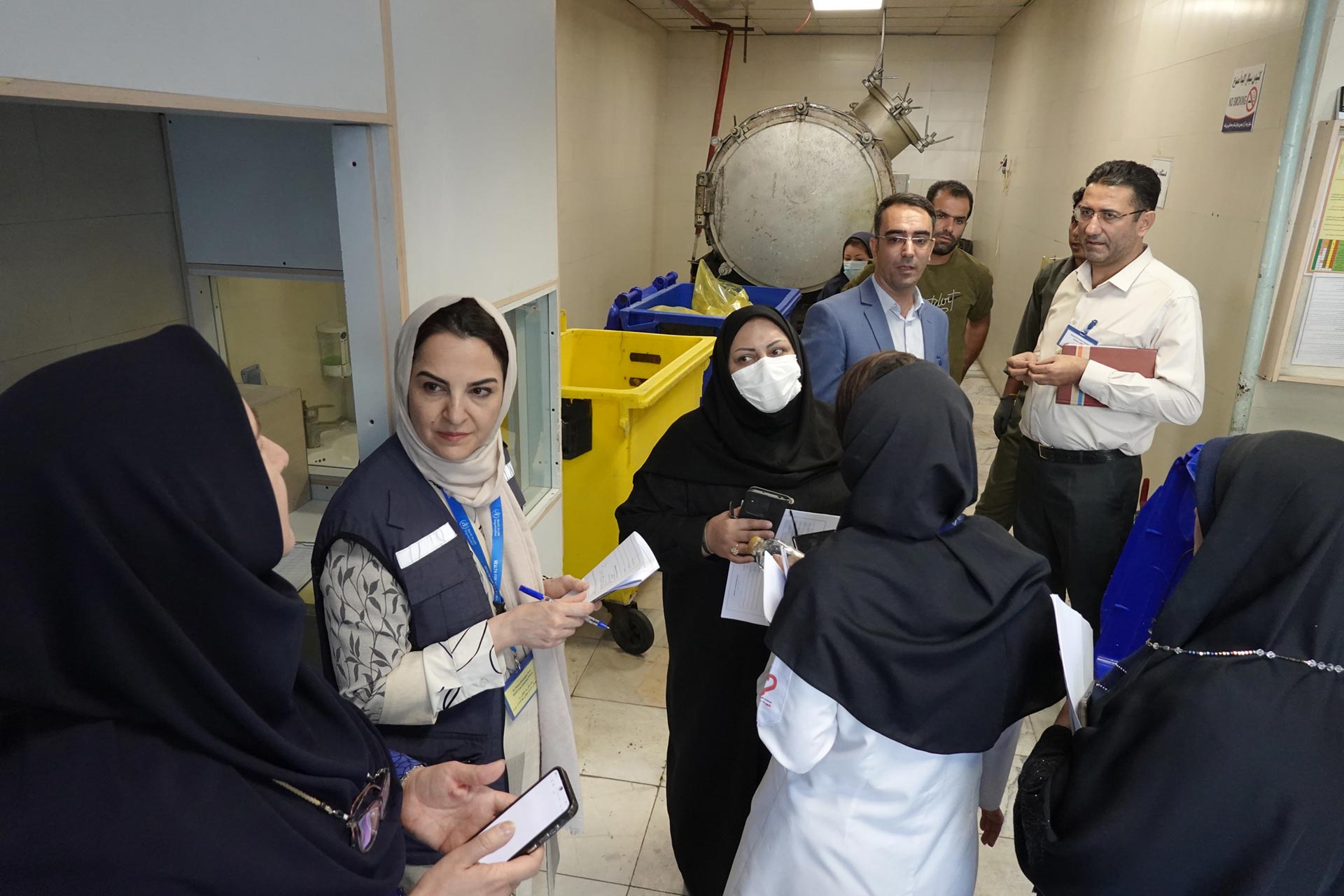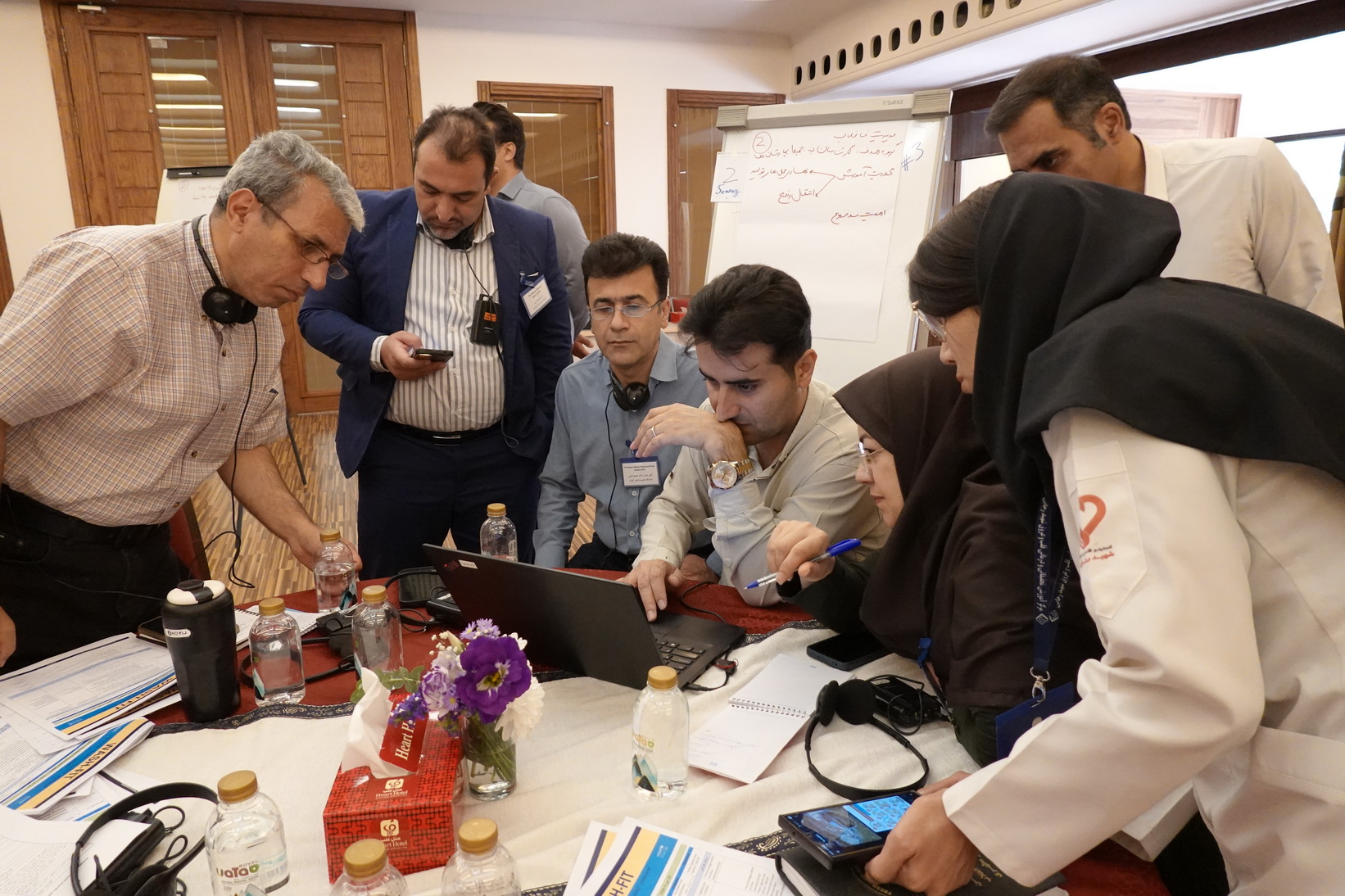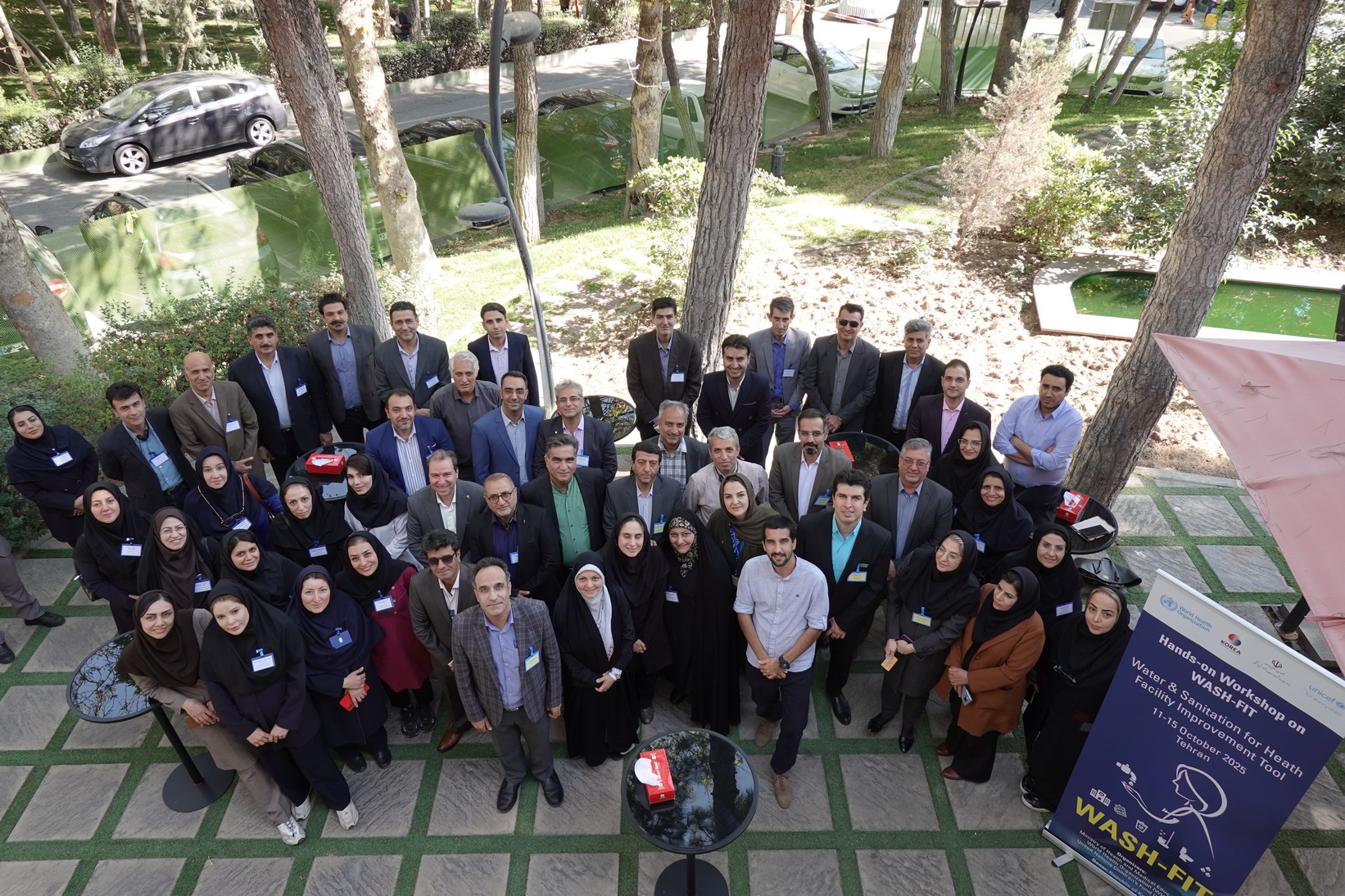
The workshop strengthened the capacity of participants to lead improvements in water supply, sanitation and hygiene (WASH), waste management and cleaning services in health facilities, essential elements of infection prevention, patient safety and quality care.
“Safe and sustainable WASH services are not optional, they are fundamental to delivering quality health care, protecting patients and health workers and building climate-resilient health systems,” said Dr Jaffar Hussain, WHO Officer-in-Charge in Iran. “This training has equipped national experts with the tools and knowledge to make this a reality in every health facility.”

WASH FIT is a risk-based, iterative management tool developed by WHO and UNICEF to help health facilities identify hazards, prioritize improvements and monitor progress. Its adoption can reduce health care-associated infections, improve maternal and newborn care and build resilience against climate and health threats. In use in more than 50 countries, it enables health facilities to identify risks, plan and prioritize low-cost improvements and monitor progress over time.
The initiative builds on the Islamic Republic of Iran’s ongoing efforts to improve WASH in health care, including a 2021 baseline assessment of 742 facilities and a costed national roadmap developed with WHO support. It aligns with the WHO–MoHME 5-year strategic framework on environmental and occupational health and the UN Sustainable Development Cooperation Framework for Iran.
The workshop concluded with a high-level ceremony at Shahid Rajaei Heart Hospital attended by senior officials from MoHME, the Ministry of Energy, Presidential Department of Environment, WHO, UNICEF and the United Nations.

Mr Stefan Priesner, UN Resident Coordinator in Iran, highlighted the significance of the training, adding: “Institutionalizing WASH FIT within national standards, financing and monitoring frameworks will ensure these improvements endure.”
Partners from the UN and MoHME agreed on the next steps, including a provincial cascade of training to expand WASH FIT implementation nationwide, and technical assistance to integrate the tool into national monitoring systems.
With the Ministry’s leadership and support from WHO, UNICEF and the UN, Iran is advancing towards a future where every health facility is safe and resilient and no one is left behind.








